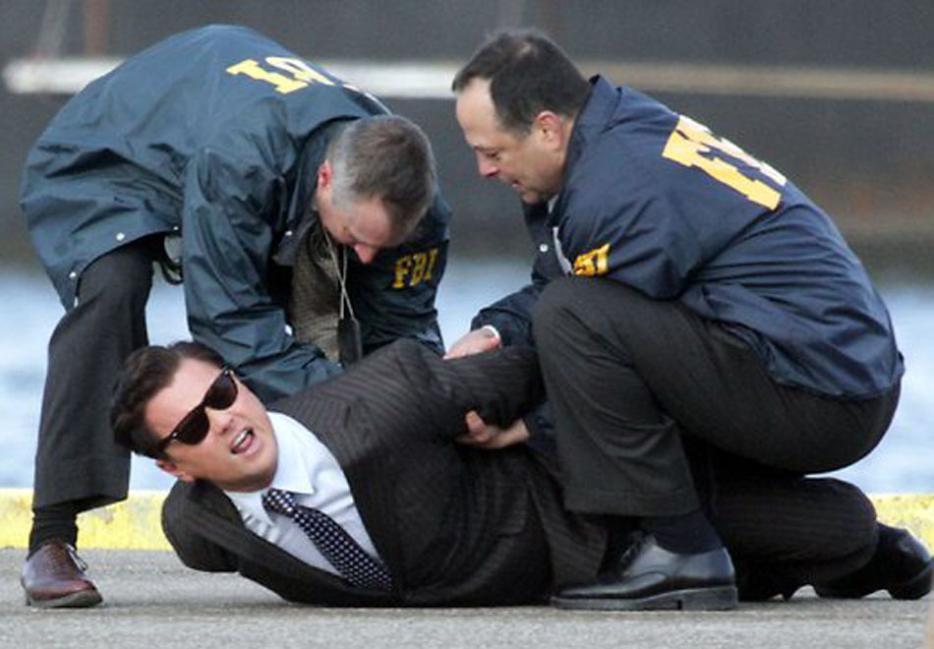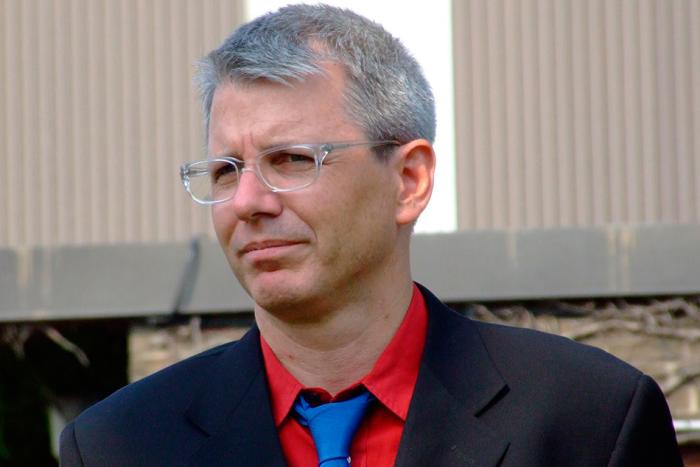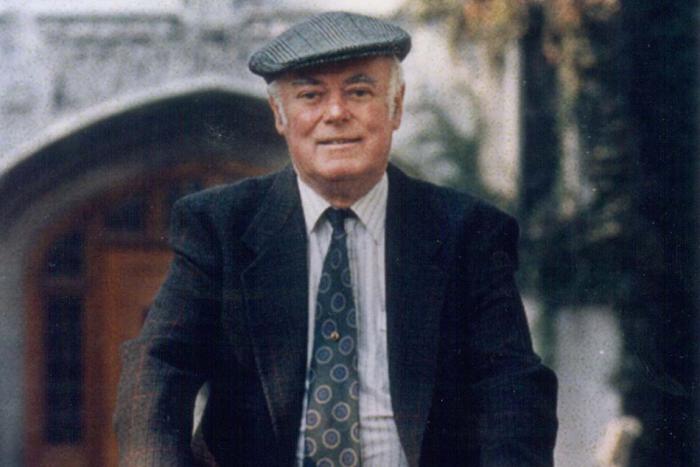If there’s a heart and soul to The Divide, Matt Taibbi’s book about who goes to jail and who doesn’t, it’s the guy who got arrested for standing in front of his apartment building.
Taibbi was in a lawyer’s office to report a story about police abuses when Andrew walked in. A black Brooklynite, built like a linebacker, Andrew emerged from a violent youth on the streets to find a job and start a young family, but he couldn’t seem to kick the habit of getting arrested for no particular reason.
Policies like “stop and frisk” gave New York’s police force essentially arbitrary powers to detain and search anyone, while statistics-driven policing gave them a quota to fill. So over the years, Andrew found himself, among other things, maced for standing on a street corner; cuffed for asking police why they were searching a friend’s car; stripped near-naked in public for exiting his girlfriend’s apartment while police happened to be in the lobby.
Eventually, he was charged with “obstructing pedestrian traffic” in the middle of the night when there was nobody else on the sidewalk, and thrown into one of the white police vans that always seem to be lurking just out-of-frame in Taibbi’s Brooklyn, ready to scoop up the unsuspecting. This is what led Andrew to the lawyer’s office that day, where he produced a summons for the dumbfounded journalist. “I never knew that it was possible for someone to be arrested for standing on the street,” says Taibbi, thinking back to that day. “It was shocking to him that it was surprising to me.”
Andrew’s story is one of the closely-observed absurdities that make up The Divide, a book of measured outrage, deep research and dark comedy that takes a magazine writer’s look at two poles of American society: at one end, the tiny coterie of Wall Street bankers who were never held to individual account for what they did to the world economy, and at the other, the vast population at the fringes of the economy who spend their days being processed in and out of the justice system in a never-ending series of arrests, bookings, court dates, and detainments.
Until recently a crusading columnist with Rolling Stone magazine, Taibbi had spent the past five or six years covering the titans of Wall Street. Now, however, he’s turned his attention to what he calls a “compare and contrast” exercise as to why some people never go to jail, and others can do nothing but.
The answers Taibbi arrives at aren’t as simple as you might expect. The usual suspects—racism, income gaps, Republicans—are mostly sidelined here. What Taibbi finds instead is, in a way, even more chilling: bureaucracy, and bad ideas. Turns out this is just the subject for an author who made his name as one of America’s least conventional journalists.
*
Taibbi doesn’t have much use for the word “gonzo,” no matter how often people have tried sticking it to him. “I think that term is a weird non-specific term and it doesn’t really apply to me,” he says, cheerfully enough, asked about it for what must be the umpteen-hundredth time. “It doesn’t really apply to anybody except for him.” Him, of course, being Hunter S. Thompson.
The Hunter S. Thompson comparisons get bandied about for a reason. Taibbi first made his name in Moscow as the co-editor of a legendarily outrageous expat newspaper called The eXile. The paper surveyed the anarchic, drug-addled post-Soviet landscape of oligarchs and political prisoners with a mix of incisive political journalism and a kind of Howard Stern approach to participatory hedonism. (Think Frank magazine in its heyday, except with Moscow as its grist instead of Ottawa.)
In those days, Taibbi was implicated in a number of well-publicized stunts, most notoriously launching a pie, said to be spiked with horse semen, at an American journalist in Moscow who eXile had named the worst political hack in the city. As Taibbi got noticed as a forcefully direct political writer, the “gonzo” tag started to stick, aided and abetted by later endeavours back home, like interviewing a former American anti-drug official after dropping LSD and donning a Viking helmet. At Rolling Stone, Taibbi’s antics transitioned into toothsome reporting about Wall Street, but he remained forcefully direct and frequently profane.
The Divide marks something of a new chapter for Taibbi. A new father, who’s minding a baby in the background as we speak, he recently left Rolling Stone, where he’d been writing for a decade, to join First Look Media, Glenn Greenwald’s well-funded new online media company, editing an as-yet unnamed publication of satire and commentary he describes as falling into the tradition of Spy magazine.
In those days, Taibbi was implicated in a number of well-publicized stunts, most notoriously launching a pie, said to be spiked with horse semen, at an American journalist in Moscow who eXile had named the worst political hack in the city.
“I have done things in the same vein as Hunter Thompson, in the past—I’ve done very first person-y stuff where I’m definitely a character in the story, but I’ve done less and less of that as time goes on,” Taibbi says. “Things people associate with gonzo journalism—profanity and tales of profanity and drug use—there’s none of that in this book.”
That is mostly true. Taibbi might have removed himself from his writing as a character, but he still has his angle: he does not hesitate to introduce Dick Fuld, the supremely unlikeable CEO of Lehmann Brothers investment bank, as “one of the greatest assholes of our times.” (“It’s hard to describe Dick Fuld without using the word asshole,” Taibbi says, by way of explanation. “But elsewhere in the book, I tried to cut down on it.”)
It’s just as well he didn’t cut down on it too much. The Divide isn’t about Taibbi, but he remains behind every sentence. An exploration of systemic problems needs a point of view to remind us how easily we’ve accepted the absurd.
*
America, The Divide argues, has fallen under the spell of some profoundly rotten ideas, which have been processed into even worse rules and policies. Ideas like the “broken windows” theory of crime-reduction, which holds that petty crimes need to be stamped out as a way of preventing bigger ones; ideas like treading lightly when prosecuting corporations, lest the “collateral consequences” put them out of business and cause job losses.
Though Taibbi writes with the tone of a guy who’s pointing at something totally insane, the book is above all else a collection of lucid explanations. The Divide methodically traces a handful of case studies, alternating between the worlds of Wall Street and those on the margins.
Mercifully, it avoids the scattershot approach that bedevils so much nonfiction these days, in which chapters are reduced to vaguely-themed trail mix bags of anecdotes and study results. Instead, this is a profoundly narrative work. It takes one case study at a time and follows it through, step by step, to the gruesome conclusion.
We follow Andrew through to his day in court, where he discovers worn-out public defenders so used to processing guilty pleas that they simply can’t understand or accept that he actually wants to fight his charge of obstructing an empty sidewalk. And Taibbi takes us into the boardrooms of American banking giants in the days of the 2008 collapse, where executives at firms that were employing mind-boggling sleights of hand to feign solvency struggled to save million-dollar bonuses for themselves, as their handiwork took down the economy.
We meet the undocumented Columbian immigrant who built a successful business in Georgia, only to be nabbed after a traffic accident and processed through America’s increasingly privatized penal system (spoiler: for all the downsides of the prison-industrial complex, the accommodations are pretty good). From there, he was slapped into shackles and tipped across the Mexican border—only to fall into the hands of the cartels, who have their own prison-industrial complex going, rounding up helpless former deportees and extorting them back to their families.
And Taibbi takes us to, of all places, Toronto, where Prem Watsa, the CEO of Fairfax Financial Holdings, spent years fighting a cabal of mutual fund barons who had shorted his firm, betting it would fail and then doing whatever it took to make that come to pass. This ultimately included the hiring of stooges to conduct a comedically bizarro dirty-tricks campaign.
Russia never seems far from Taibbi’s mind. Early in the book, he harkens back to the way its byzantine rules only kicked in once someone crossed an invisible line. “One of the first things I noticed about that dysfunctional wreck of a lunatic country was that it had two sets of laws, one written and one unwritten. The written laws were meaningless, unless you violated one of the unwritten laws, at which point they became all-important.” So, too, modern America.
In his way, Taibbi has gone from being a conduit of insanity to a chronicler of it. He has no neat package of social prescriptions, tied up with a bow. What he has is incredulity: about the value our society has come to place on individual accountability, and how unevenly we’ve decided to apportion it. “That, to me, is what the divide is,” he says. “A huge bureaucratic process by which people who don’t have a lot of money really struggle and end up in difficult situations, and people who do have money just keep getting away with everything.”





